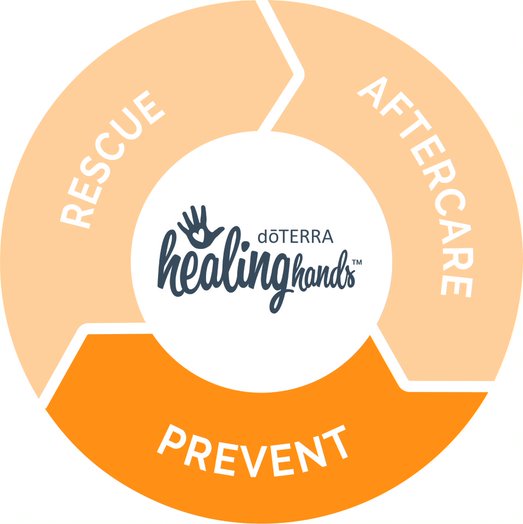Origin: a Latin derivative
meaning "Gift of the Earth."
How Do I Use Essential Oils Safely?
Traditionally, certain essential oil application methods have been preferred or used exclusively. However, as the research surrounding essential oils continues to develop, a greater understanding of application methods is now understood. All application methods are safe when used appropriately, including aromatic and topical methods. One or multiple application methods can be used for a wide range of emotional and physical wellness applications. They can be used a single oil at a time or in complex blends in one of two methods:
Aromatic
The sense of smell is a tool that can elicit powerful physiologic, mental, and emotional responses. Essential oils are quickly absorbed by the smell receptors, which have a direct link to the limbic system by way of the olfactory nerve. The limbic system is part of the brain that supports a variety of functions including smell, emotions, behavior, and memory. For this reason, essential oils have an especially powerful effect via aromatic application.
Some essential oils induce uplifting or invigorating effects, while others are more calming. Diffusion is one of the simplest methods for using essential oils aromatically. Diffusers that use cold air or water are ideal. However, using essential oils aromatically does not require any special diffusing devices.
You can achieve the same health benefits by simply placing a few drops of essential oil in the palm of your hand that is then cupped around the nose as you breathe deeply.
Topical
Topical application is a very effective method for applying essential oils. Because essential oils have low molecular weights and are lipid soluble, they easily penetrate the skin. Once absorbed, they stay in the applied area for a localized benefit.
Although essential oils are readily absorbed, there are many ways to increase absorption. Using a light massage will increase the blood flow to the area of application, in turn improving distribution throughout the body. Use of a carrier oil can also increase absorption, especially in skin that is dry or flaky as it helps moisturize the skin and slow evaporation of the oil.
To decrease the likelihood of developing a skin sensitivity, especially on young or sensitive skin, it is advisable to use a carrier oil (such as Fractionated Coconut Oil) to dilute more potent oils and when trying an oil for the first time. The recommend dilution ratio is typically one drop of essential oil to three drops of carrier oil.
It’s always advisable to use several small doses throughout the day rather than a single large dose. Start with the lowest possible dose (1–2 drops). A topical dose can be repeated every 4–6 hours as needed. Because every individual is unique, the dose will vary for each individual based on size, age, and overall health status.
Beneficial Areas You Can Apply Essential Oils
- Neck
- Forehead and temples
- Chest and abdomen
- Arms, legs, bottom of feet
Other Effective Methods of Topical Application
- Add a few drops of oil to a warm bath
- Make a hot or cold compress by soaking a towel or cloth in water, adding essential oils, and then applying to the desired area
- Add oil to a lotion or moisturizer and then apply to skin
Sensitive Areas to be Avoided:
- Some facial areas, such as the skin around the eyes
- Eyes and inner ears
- Broken, damaged, or otherwise injured skin





